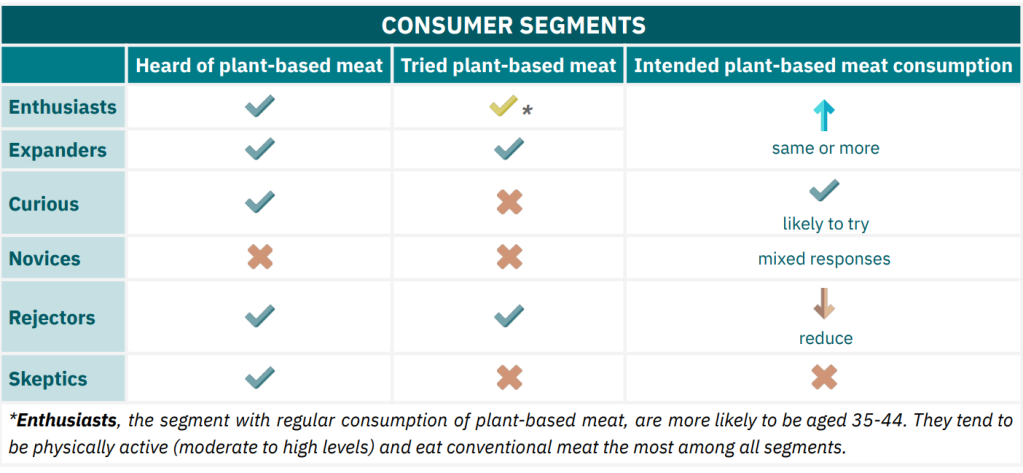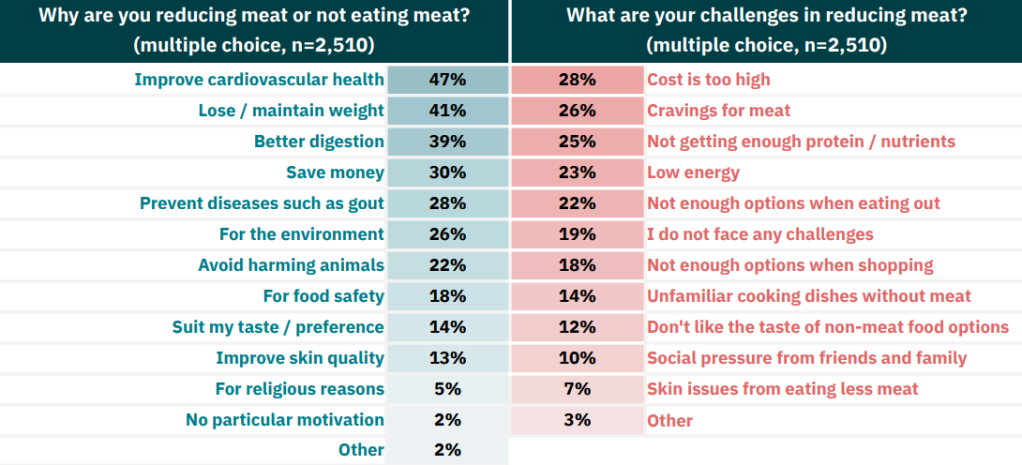A new report from The Good Food Institute APAC found that most Southeast Asian consumers don’t plan to reduce their consumption of conventional meat in exchange for plant-based meat.
The study – Decoding Demand: The appetite for alternative proteins in Southeast Asia – surveyed consumers in six SEA countries (Indonesia, Malaysia, the Philippines, Singapore, Thailand, and Vietnam) to understand consumer behaviour and attitudes around plant-based meat consumption.

According to the report, only 21% of those surveyed showed an intention to decrease conventional meat consumption. While most respondents were aware of plant-based meat, over half had not tried it and only 5% claimed to consume it on a weekly basis.
Interestingly, the plant-based meat “enthusiast” segment was shown to be the most likely to increase consumption of conventional meat.
Thailand was the biggest consumer of plant-based meat among the six countries, with Indonesia having the lowest frequency.
Among the primary motivations for consuming plant-based meat were health (56%) and nutrition (41%). Perceptions of over-processing or additives were not found to be a major concern in the region.

In addition, affordability was the most critical factor influencing plant-based meat consumption – over 60% of respondents said they will purchase plant-based meat if it is priced at parity with conventional meat.
The study found that while plant-based meat consumption levels in SEA are nowhere near those of more developed markets, there is huge potential to drive increased trial rates and frequency. Restaurants are the most common point for first trials and play a key role in attracting consumers to the category.
To stay up-to-date on the latest industry headlines, sign up to Future Alternative’s enewsletter.
Posted on:


